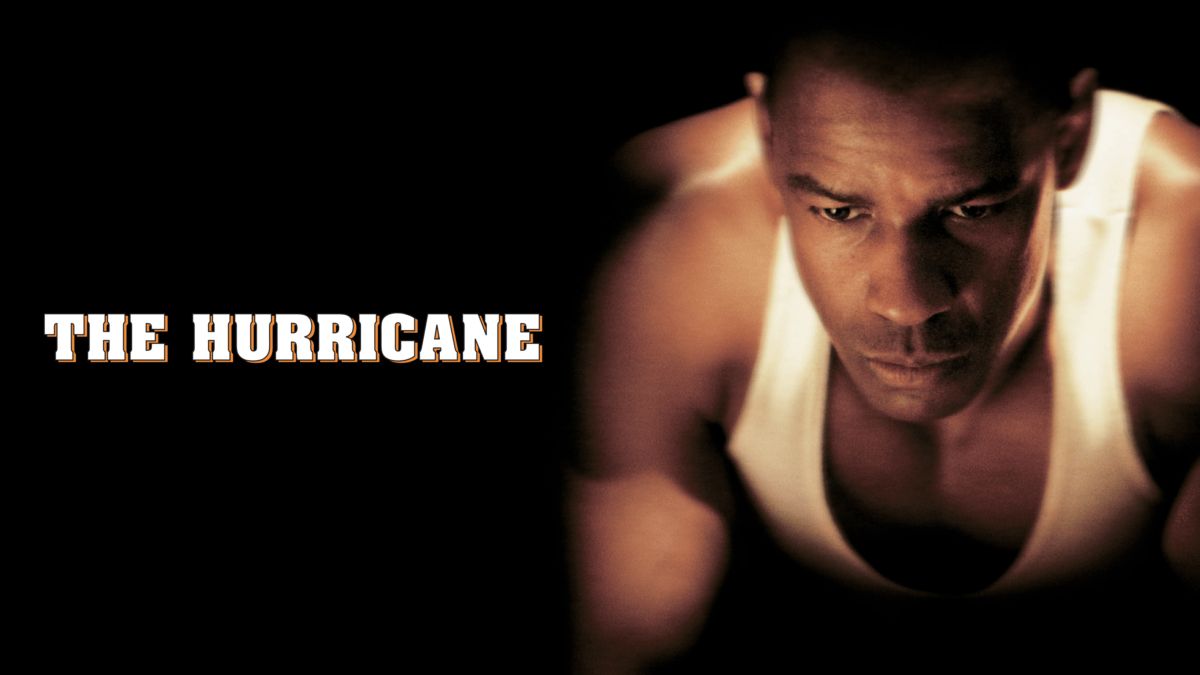
The Hurricane, directed by Norman Jewison, is a gripping biographical film that tells the incredible true story of Rubin “Hurricane” Carter, a talented boxer who was wrongfully convicted for a triple murder in the 1960s. Starring Denzel Washington in the lead role, this compelling movie takes us on a rollercoaster journey through Carter’s life, his struggles, and his determination to prove his innocence.
Throughout the film, we are immersed in the world of professional boxing, racial injustice, and the power of hope. The Hurricane not only showcases Washington’s brilliant performance but also sheds light on the flawed legal system that failed Carter and the lasting impact it had on his life.
In this article, we will delve into 43 fascinating facts about The Hurricane, from behind-the-scenes trivia to its critical reception and historical accuracy. So, grab your popcorn and get ready to explore the compelling story behind this remarkable film.
Key Takeaways:
- Denzel Washington’s powerful performance in “The Hurricane” earned him an Oscar nomination, shedding light on the injustice faced by Rubin Carter and sparking conversations about racial discrimination and wrongful convictions.
- “The Hurricane” is a gripping film that showcases the resilience of the human spirit and the importance of fighting for justice, inspiring audiences to stand up against injustice and advocate for change.
Denzel Washington delivers an unforgettable performance.
Washington portrays the courageous Rubin “Hurricane” Carter with incredible passion and authenticity, earning him an Academy Award nomination for Best Actor.
“The Hurricane” is based on a true story.
The film chronicles the real-life experiences of Rubin Carter, a talented boxer whose life was forever changed by a wrongful conviction.
The screenplay was adapted from Carter’s autobiography.
Writer and producer Armyan Bernstein drew inspiration from Carter’s own memoir, “The Sixteenth Round: From Number 1 Contender to #45472.
Norman Jewison captures the essence of Carter’s struggle.
Directed by Norman Jewison, known for his expert storytelling, “The Hurricane” delves deep into the emotions and injustices faced by the protagonist.
The film sheds light on racial discrimination.
The Hurricane” explores the systemic racism prevalent in the criminal justice system, raising awareness about the inequalities faced by marginalized communities.
Denzel Washington underwent intense training for the role.
To accurately portray the physicality and capabilities of a professional boxer, Washington underwent rigorous training under the guidance of boxing coach Terry Claybon.
The movie boasts a talented supporting cast.
The film features stellar performances from actors like John Hannah, Liev Schreiber, and Deborah Kara Unger, who add depth and nuance to the story.
Carter’s case gained widespread attention.
Due to the injustice faced by Rubin Carter, his case garnered significant media coverage and sparked national and international outrage.
Bob Dylan’s song brings emotional depth to the film.
Bob Dylan’s song “Hurricane” was written about Rubin Carter’s wrongful conviction and plays a poignant role in the film’s soundtrack.
The film’s score was composed by Christopher Young.
Christopher Young’s haunting and emotive score adds intensity to the pivotal moments of the film, enhancing the viewers’ emotional experience.
“The Hurricane” received critical acclaim.
The film was lauded by critics for its gripping narrative, powerful performances, and its ability to shine a light on important social issues.
The movie was nominated for an Academy Award.
The Hurricane” received an Oscar nomination for Best Actor (Denzel Washington), solidifying the film’s impact and recognition in the industry.
Denzel Washington won a Golden Globe for his performance.
Washington’s portrayal of Rubin “Hurricane” Carter earned him a Golden Globe Award for Best Actor in a Drama, showcasing his exceptional talent.
The film brings attention to wrongful convictions.
“The Hurricane” raises awareness about the flaws in the justice system and the devastating consequences of wrongful convictions.
The Hurricane’s legal battle took years.
Rubin Carter spent nearly twenty years fighting for his release, and the film effectively portrays the resilience and determination it took to overcome immense adversity.
The movie showcases the importance of activism.
The actions of individuals and organizations who rallied behind Carter’s cause are depicted, highlighting the significance of activism in fighting for justice.
Carter’s story inspired many.
Rubin Carter became a symbol of strength and resilience, inspiring countless individuals to stand up against injustice and fight for what is right.
The Hurricane became a cultural touchstone.
The film’s impact extended far beyond the box office, sparking conversations and debates about the flaws within the criminal justice system.
The film presents multiple perspectives.
“The Hurricane” showcases various viewpoints surrounding Carter’s case, encouraging viewers to critically analyze the evidence and question the truth.
“The Hurricane” premiered at the Toronto International Film Festival.
The film made its debut at the prestigious Toronto International Film Festival, generating buzz and anticipation among both audiences and critics.
Denzel Washington researched Rubin Carter extensively.
Washington dedicated significant time and effort to studying Rubin Carter’s life, personality, and mannerisms in order to accurately portray him onscreen.
The Hurricane’s cinematography captures the essence of the story.
The film’s visual direction, captured by cinematographer Roger Deakins, immerses the audience in the gritty reality of Rubin Carter’s journey.
“The Hurricane” received a standing ovation at the Cannes Film Festival.
The film garnered a thunderous response at the prestigious Cannes Film Festival, further solidifying its impact and recognition in the global film industry.
The Hurricane’s courtroom scenes are riveting.
The intense and emotionally charged courtroom scenes in the film provide gripping moments that highlight the battle for justice.
The film showcases the power of friendship.
“The Hurricane” explores the unwavering friendship between Rubin Carter and Lesra Martin, a young man who helped in his quest for justice.
The Hurricane’s screenplay is thought-provoking.
The script, penned by Armyan Bernstein and Dan Gordon, delves into complex themes of human resilience, social justice, and the quest for truth.
The film raises important ethical questions.
“The Hurricane” forces viewers to confront moral dilemmas regarding the fairness of the justice system and the treatment of marginalized communities.
Denzel Washington felt a personal connection to the story.
Washington, a prominent advocate for social justice, felt deeply connected to Rubin Carter’s story and used his platform to bring attention to the issues portrayed in the film.
The Hurricane’s emotional impact is undeniable.
Through its powerful storytelling, outstanding performances, and impactful themes, “The Hurricane” leaves a profound and lasting emotional impact on its viewers.
The film promotes empathy and understanding.
“The Hurricane” encourages viewers to walk in the shoes of those who have been wronged and reminds us of the value of compassion and empathy.
The Hurricane showcases the importance of perseverance.
Rubin Carter’s unwavering determination to prove his innocence serves as a powerful reminder of the strength of the human spirit.
The film’s title holds symbolic significance.
“The Hurricane” symbolizes not only the storm of injustice faced by Rubin Carter but also his indomitable spirit and unwavering resilience.
The Hurricane’s courtroom scenes were shot in a real courtroom.
To add authenticity, the film’s courtroom scenes were filmed in an actual Toronto courtroom, lending credibility to the legal proceedings portrayed.
The Hurricane received accolades from the NAACP.
The film was honored with multiple awards from the NAACP, recognizing its powerful examination of racial injustice.
The Hurricane’s screenplay went through numerous revisions.
The script for the film went through several iterations before Armyan Bernstein and Dan Gordon crafted the version that ultimately made it to the screen.
The Hurricane’s release sparked renewed interest in Rubin Carter’s case.
The film reignited public interest and led to further examination and reevaluation of the evidence surrounding Rubin Carter’s conviction.
The Hurricane is a testament to the power of storytelling.
Through the art of filmmaking, “The Hurricane” sheds light on social injustices and serves as a catalyst for change.
The film’s costume design reflects the era.
The meticulous attention to detail in the film’s costume design transports viewers back to the 1960s and 1970s, accurately capturing the essence of the time period.
The Hurricane’s editing enhances the narrative.
The skillful editing by Stephen E. Rivkin helps build tension and maintain a gripping pace throughout the film, keeping audiences fully engaged.
The film received an Oscar nomination for Best Supporting Actor.
Liev Schreiber, who delivered a compelling performance as Sam Chaiton, Rubin Carter’s Canadian advocate, earned an Academy Award nomination for Best Supporting Actor.
The Hurricane stands as an important historical document.
By bringing Rubin Carter’s story to the screen, “The Hurricane” immortalizes his struggle and serves as an enduring testament to the fight against injustice.
The Hurricane’s release sparked conversations about prison reform.
The film prompted discussions about the need for reform within the criminal justice system, particularly regarding issues of racial bias and wrongful convictions.
The Hurricane continues to inspire audiences today.
Decades after its release, “The Hurricane” remains a powerful reminder of the resilience of the human spirit and the importance of fighting for justice.
With its gripping narrative, remarkable performances, and thought-provoking themes, “The Hurricane” remains a cinematic triumph, continuing to captivate audiences and inspire change.
Conclusion
The movie “The Hurricane” is an incredibly powerful and thought-provoking film that showcases the story of Rubin “Hurricane” Carter, a former professional boxer wrongfully convicted of murder. Through gripping performances, a compelling script, and expert direction, the movie captivates audiences and sheds light on the injustice faced by Carter and others like him.
With its brilliant portrayal of the legal battles and racial tensions of the time, “The Hurricane” serves as a reminder of the importance of fighting for justice and equality. It also highlights the resilience and strength of the human spirit in the face of adversity.
If you haven’t seen “The Hurricane” yet, it’s definitely a film worth watching. Prepare to be moved, inspired, and left with a deep appreciation for the power of perseverance and the pursuit of truth.
FAQs
Q: Is “The Hurricane” based on a true story?
A: Yes, “The Hurricane” is based on the real-life story of Rubin “Hurricane” Carter, a boxer who was wrongfully convicted of murder and incarcerated for almost 20 years.
Q: Who stars in “The Hurricane”?
A: Denzel Washington delivers a remarkable performance as Rubin “Hurricane” Carter in the lead role. The film also features supporting performances from actors such as Vicellous Reon Shannon, Deborah Kara Unger, and Liev Schreiber.
Q: Did Rubin Carter eventually get released from prison?
A: Yes, after spending nearly two decades behind bars, Rubin “Hurricane” Carter was finally released in 1985. His conviction was overturned after a long legal battle and ongoing public support for his innocence.
Q: Did “The Hurricane” receive any awards or nominations?
A: Yes, the film received critical acclaim and garnered several award nominations. Denzel Washington, in particular, was nominated for the Academy Award for Best Actor for his outstanding performance in the film.
Q: Can “The Hurricane” be considered an important movie in terms of social impact?
A: Absolutely. “The Hurricane” addresses significant issues like racial injustice, corruption in the legal system, and the relentless fight for justice. It brings awareness to these issues and sparks important conversations about systemic inequalities.
Was this page helpful?
Our commitment to delivering trustworthy and engaging content is at the heart of what we do. Each fact on our site is contributed by real users like you, bringing a wealth of diverse insights and information. To ensure the highest standards of accuracy and reliability, our dedicated editors meticulously review each submission. This process guarantees that the facts we share are not only fascinating but also credible. Trust in our commitment to quality and authenticity as you explore and learn with us.


